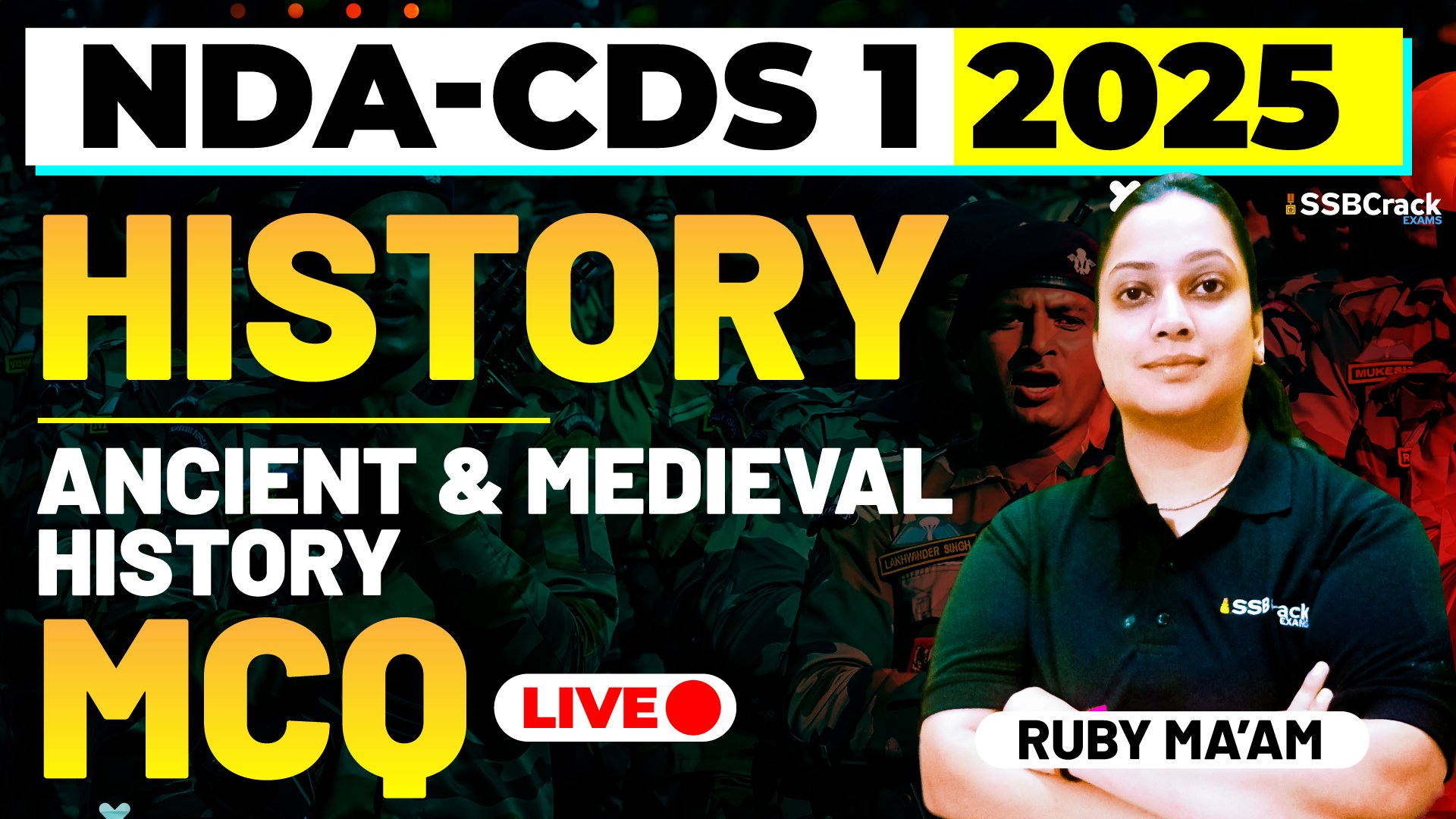Preparing for competitive exams like the National Defence Academy (NDA) and Combined Defence Services (CDS) requires a well-rounded approach to mastering various subjects, including General Knowledge. Ancient and Medieval History is a crucial component of the General Knowledge section, especially for aspirants aiming to excel in these exams. This article will explore why solving multiple-choice questions (MCQs) on Ancient and Medieval History is essential and how it can benefit NDA/CDS aspirants.
1. Strengthening Historical Knowledge Base
Ancient and Medieval History covers topics ranging from the Indus Valley Civilization, Mauryan and Gupta Empires, to the Delhi Sultanate, Mughals, and more. Mastering this section requires a solid foundation of factual knowledge. Regularly solving MCQs on these periods can help aspirants retain important information and dates, such as the achievements of Ashoka, the administrative policies of Akbar, and the socio-economic conditions under different empires.
By practicing MCQs, candidates can identify gaps in their knowledge, focus on weak areas, and reinforce key historical events. This enhances their overall understanding, enabling them to recall facts accurately during the exam.
2. Enhancing Time Management Skills
Both NDA and CDS exams have time constraints that challenge candidates to answer as many questions as accurately as possible. Solving MCQs regularly improves an aspirant’s ability to recall information quickly and make fast decisions. Ancient and Medieval History often includes complex names, dates, and events, so practicing timed MCQ tests can help aspirants navigate through the questions efficiently on exam day.
Moreover, this practice aids in developing speed without compromising accuracy, a skill that proves invaluable in competitive exams where every second counts.
3. Learning to Apply Knowledge in a Practical Format
Many candidates struggle with converting their theoretical knowledge into the practical format needed for MCQs. Solving MCQs on Ancient and Medieval History provides a practical approach to learning, where candidates apply knowledge rather than just memorizing facts. For example, rather than just remembering dates, they learn to associate events with these dates and understand the significance of each event within its historical context.
By solving questions about rulers, kingdoms, administrative practices, and cultural developments, aspirants start thinking in terms of cause and effect, enabling them to make educated guesses even if they’re unsure of the answer.
4. Identifying Patterns and Trends in History Questions
Repeated practice with MCQs helps aspirants recognize recurring patterns in questions. Ancient and Medieval History questions often follow certain themes, such as the significance of certain empires, the roles of major leaders, cultural contributions, and conflicts between different dynasties. By solving a diverse range of questions, candidates can become familiar with common question types and predict the focus areas for future exams.
Recognizing these patterns can significantly improve a candidate’s ability to tackle history questions effectively, even if they’re presented in new or unfamiliar formats.
5. Boosting Confidence and Reducing Exam Anxiety
Confidence is key to performing well in any competitive exam, and practice is the best way to build it. Solving MCQs regularly, particularly on a challenging subject like Ancient and Medieval History, can help candidates feel prepared and less anxious. Knowing that they’ve already tackled similar questions boosts their morale and reduces stress during the exam.
By regularly testing themselves with MCQs, candidates develop resilience and a positive mindset, which is crucial for facing the rigorous NDA and CDS exams.
6. Improving Memory Retention through Repetitive Practice
History is a subject that demands a strong memory, given the vast number of dates, names, and places to remember. Practicing MCQs repetitively reinforces these facts in an aspirant’s memory, making it easier to recall the correct answers when needed. Studies show that repetitive testing helps in long-term retention, making it an ideal technique for mastering history topics.
7. Simulating the Exam Environment
Regularly solving MCQs under timed conditions helps simulate the exam environment, giving candidates a feel for the real test. This exposure helps them adapt to exam pressure and refine their pacing strategies, which ultimately leads to better performance.
Conclusion
For NDA/CDS aspirants, Ancient and Medieval History is a subject that can be mastered effectively through consistent MCQ practice. This approach not only strengthens historical knowledge but also enhances time management, improves memory retention, and builds confidence. As candidates invest time in solving MCQs, they will find themselves better prepared, more resilient, and capable of tackling the exam with clarity and confidence.







